The International Court of Justice (ICJ) has announced they will begin deliberation on a number of provisional measures against Ecuador regarding the ongoing court case between the nation and Mexico regarding the raid of the Mexican Embassy in Ecuador’s capital of Quito.
Mexico’s Statement:
The deliberation follows both Mexico’s and Ecuador’s statements to the court on Tuesday and Wednesday, respectively. In these statements, the Mexican representative to the ICJ maintained Mexico’s claim that the embassy raid was in violation of international law and not only violated the rights of Mexico but of other sovereign states across the world.
Furthermore, the Mexican representative reiterated the nation’s claim that Ecuadorian authorities participated in a number of intimidation tactics in an effort to see former Vice President Jorge Glas, the reason for the raid, released into their custody. Mexico continued, stating that Glas’ party faces “persecution,” a key reason for accepting the former VP’s request to enter the Embassy alongside the decision to grant Glas asylum.
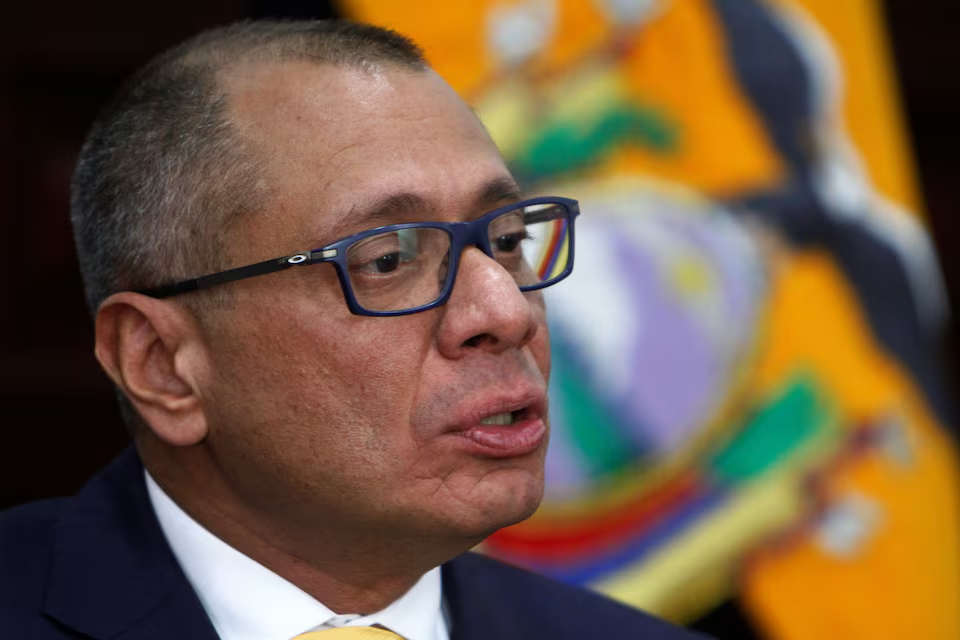
The representative then reiterated the declaration of the nation’s ambassador to Ecuador as “persona non grata” alongside previously alleged increases in surveillance of the Mexican Embassy, which included the Deputy Chief of the Diplomatic Mission being followed by a “suspicious vehicle” only for his pursuers to flee when confronted, a military vehicle parked nearby the embassy, which Mexican officials claim to be used to prevent cellphone communications, and a case where an embassy worker was followed by police, prompting the worker to return to the embassy in fear of her security.
A key portion of Mexico’s statement was in regards to the perceived violation of the Vienna Convention on Diplomatic Relations by Ecuador when authorities entered the Embassy uninvited. This claim has resulted in a request for a number of provisional measures in order to safeguard the Mexican Embassy, which has since been left empty following the raid prior to the court’s final ruling.
The Measures Included:
- That the Government of Ecuador refrains from acting against the inviolability of the premises of the mission and the private residences of diplomatic agents, and that it takes appropriate measures to protect and respect them, as well as the property and archives therein, preventing any form of disturbance.
- That the Government of Ecuador allows the Mexican Government to clear
diplomatic premises and the private residence of diplomatic agents. - That the Government of Ecuador ensures that no action is taken that might
prejudice the rights of Mexico in respect of any decision which the Court may render on the merits. - That the Government of Ecuador refrains from any act or conduct likely to aggravate or widen the dispute of which the Court is seized.”
Ecuador’s Response:
The Ecuadorian representative opened with claims that the court case was “unnecessary and unjustified” due to Ecuador’s formal promise to Mexico to protect and safeguard the Embassy alongside all documents while also allowing Mexico to clear the premises of the embassy alongside private residences belonging to embassy staff.
Ecuador further claimed that these promises were in a written letter to Mexican officials on April 9, 2024, following Mexico breaking all diplomatic relations with Ecuador. The representative to the court further stated that Mexico had refused to respond to the letter, filing the court case alongside the request for provisional measures against Ecuador two days later.
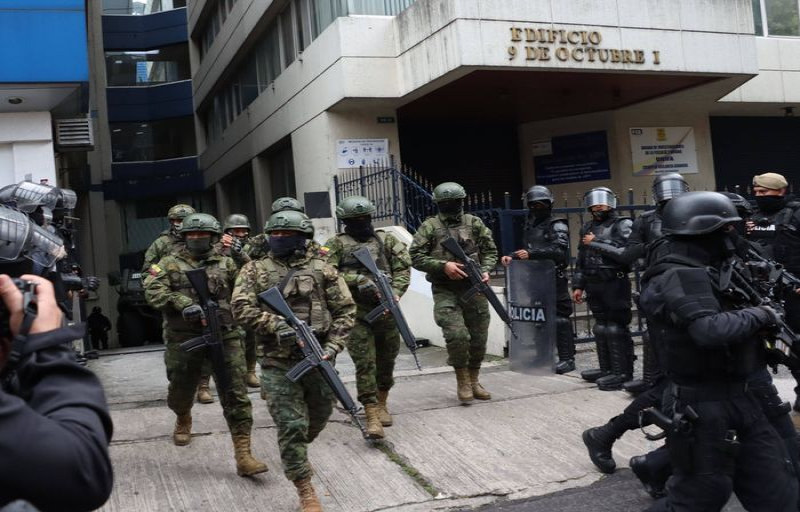
The representative continued, claiming that Mexico has made baseless claims against the Ecuadorian courts regarding supposed future incursions by authorities into the embassy, a claim Ecuador has stated has “no basis in any evidence before the Court.”
Ecuador then went on to claim that Mexico had abused its Embassy to shield a convicted criminal, Jorge Glas, from justice, claiming that by doing so Mexico interfered with internal Ecuadorian matters while also claiming the residency of Glas was in “complete disregard of its obligations to cooperate under the inter-American and the UN anti-corruption conventions.” These claims are part of a newly created case against Mexico regarding the residency of Glas, which was filed on Monday.
The representative continued, stating that the nation remains committed to the rule of law, quoting a statement given by President Daniel Noboa on April 8, 2024.
“Ecuador is a country of peace and justice that respects all nations and
international law. I want to express to our sister nation, Mexico, that I will always be
willing to solve any difference between us, but justice is not negotiable. We would never
protect criminals that have harmed Mexicans.”
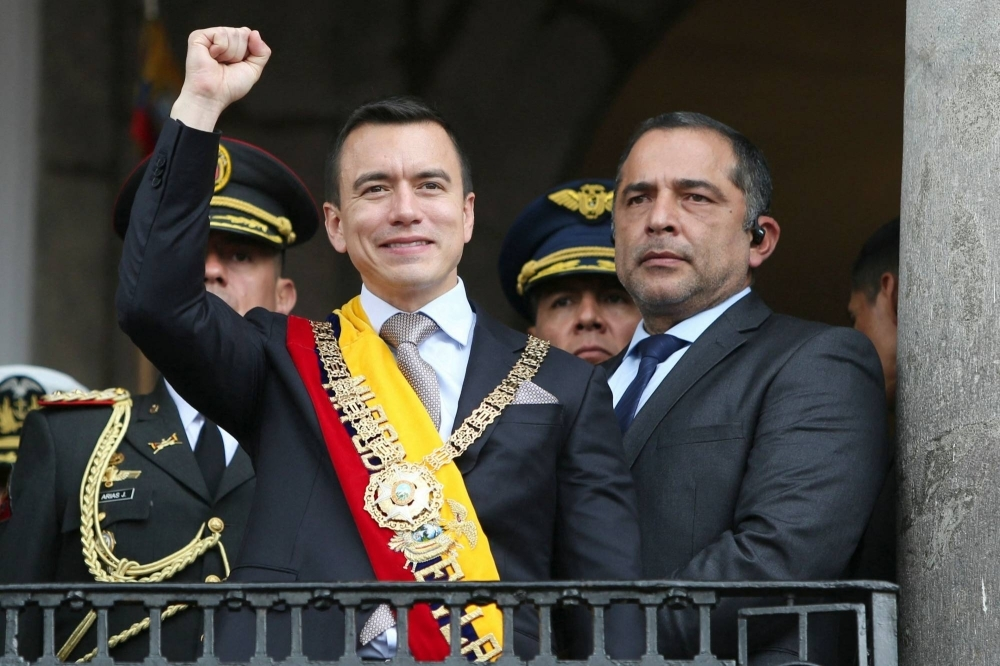
Ecuador then continued by stating that the nation has remained open to holding discussions between the two nations regarding the matter, further alleging that the country’s promises to not interfere with the Mexican Embassy left no reason for the ICJ to initiate provisional measures.
The Ecuadorian representative ended his opening statement by announcing several other speakers.
Dr. Alfredo Crosato:
Dr. Crosato began his statement by stressing that Mexico solely focused on the raid conducted by authorities while ignoring important context in the weeks that came before. Crosato stated that the events that took place before the raid shed sufficient light on why Ecuadorian authorities saw it fit to raid the Mexican Embassy. These events were of course related to the multiple convictions of corruption against Jorge Glas, with cases including the infamous Odebrecht corruption scandal, a massive multi-national corruption scandal that took place in Latin America, alongside the Caso Sobornos (Briberies Case).
Glas had previously been sentenced to time in prison following his conviction related to the Odebrecht case but was later released in late November 2022 in order to receive medical attention on the condition Glas meet with authorities once a week and not leave the country. This release would be ended in late January 2024, following Ecuador’s Constitutional Court finding the release to be in violation of the national constitution and ordering him to surrender himself to authorities.

This order would, of course, be ignored by Glas, who had entered the Mexican Embassy on December 17, 2023, where he remained until his recapture during the embassy raid. Crosato ended the segment regarding Glas by stating that during the investigation and trial of Glas, which spanned “more than seven years as well as four different governments in Ecuador,” the Mexican government never expressed concern regarding Glas prior to his arrival at the Mexican Embassy before questioning the Mexican representative’s label that Glas’ political party faces “persecution” in Ecuador.
Crosato continued by stating Mexico’s decision to grant Glas asylum was in an effort for Glas to evade justice for his corruption convictions and investigations, and by granting the former VP asylum, the country abused the condition of asylum. Crosato further stated that the Ecuadorian authority was not made aware of Glas’ request for asylum until two weeks after the Ecuadorian government requested that Mexican Embassy staff “encourage” Glas to leave the premises of the embassy in order to be detained by Ecuadorian authorities.
Crosato further stated that Mexico did not provide authorities with a copy of the request in order to reveal the basis for asylum to authorities, nor the day the request was filed, which the doctor claimed prevented Ecuador from further cooperating with Mexican officials. Ecuador responded to Mexico’s statement that Glas had requested asylum by informing embassy staff of Glas’ convictions and alleged offenses, stating that the granting of asylum would be unlawful due to the prior convictions.
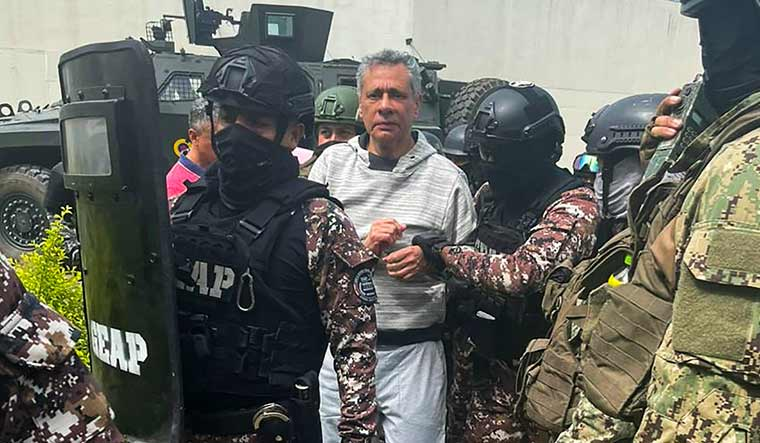
Following a month of no communications with Mexican Embassy staff, Ecuador reiterated Glas’ alleged offenses and convictions before requesting that police be allowed on embassy grounds to facilitate the arrest of Glas, a request that Crosato claims has been ignored.
A week after this request, the Mexican Embassy resumed contact with Ecuador, updating the nation on the status of Glas’ request for asylum and stating that the country would send a diplomatic mission in order to address the issue. In response, Ecuador once again stated Glas’ convictions and alleged offenses before stating that Ecuador would gladly receive the delegation and continue talks through relevant diplomatic channels.
When the diplomatic mission arrived on March 21st, the two discussed Glas’ situation with Ecuador, claiming that Glas had been convicted under common law, which prevented the former VP from attaining asylum, before reminding the delegation of Mexico’s responsibilities under the Vienna Convention and anti-corruption conventions.
Crosato then spoke regarding the embassy raid, stating that while the Mexican representative claimed the incident alongside the deterioration of relations between the two was an ““inexplicable change of dynamics,” in truth these were in line with what Ecuador claimed to be “utterly unacceptable” statements by Mexico’s President, Andrés Manuel López Obrador, which Ecuador claimed “grossly mischaracterized the murder of a presidential candidate,” further claiming that Obrador suggested “that the murder was planned so as to benefit the current President of Ecuador at the ballot.”
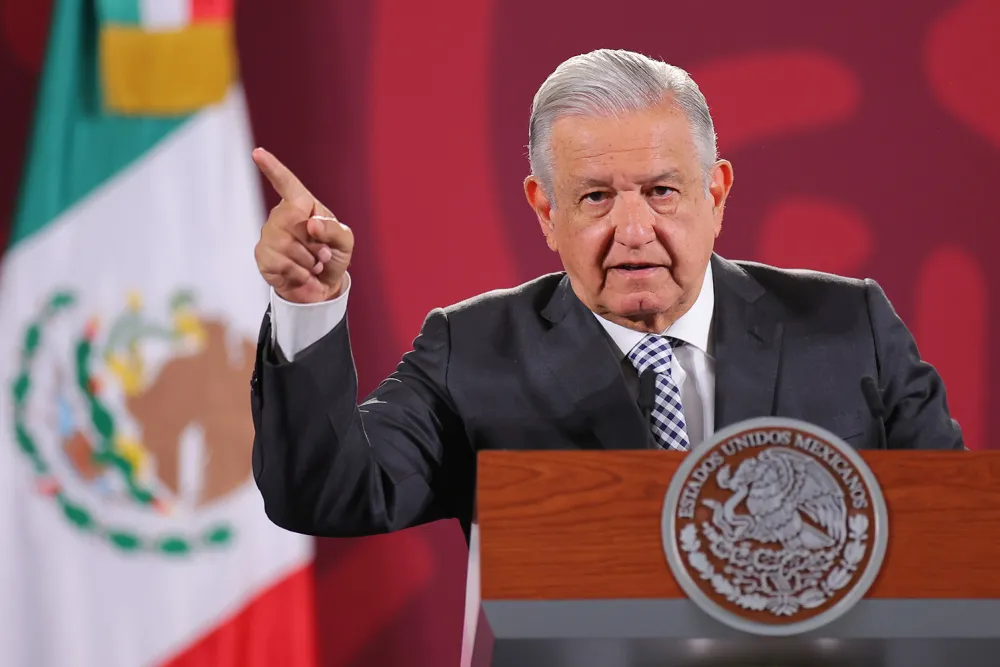
Ecuador used this statement to justify the declaration of the Mexican Ambassador as persona non grata after mentioning Ecuador’s ongoing security situation while denying Obrador’s claims before claiming the statement was a “blatant and unlawful interference in its (Ecuador’s) internal affairs.”
Crosato further claimed that Glas’ acceptance for asylum the day following the declaration of the Mexican Ambassador as persona non grata was, in truth, “a form of political payback,” as the decision was made “abruptly, without any explanation, and before Ecuador could provide the additional information that Mexico had requested during the meeting of March 21, 2024.” He continued by stating that Ecuador has still not received the application nor the acceptance document for Glas’ asylum, stating that the decision was only made publicly but failed to be expressed through official diplomatic channels.
The doctor then stated that Ecuador received a request for two Mexican air force jets to land in Ecuador to facilitate the departure of the Mexican Ambassador, a statement that would be confirmed by the Mexican representative the day prior. Crosato stated that while the Mexican representative had informed the court of this request, the representative had failed to state that the ambassador had requested to leave with an “entourage,” a request that Ecuador stated was actually made in order to facilitate Glas’ “imminent escape” from Ecuador.
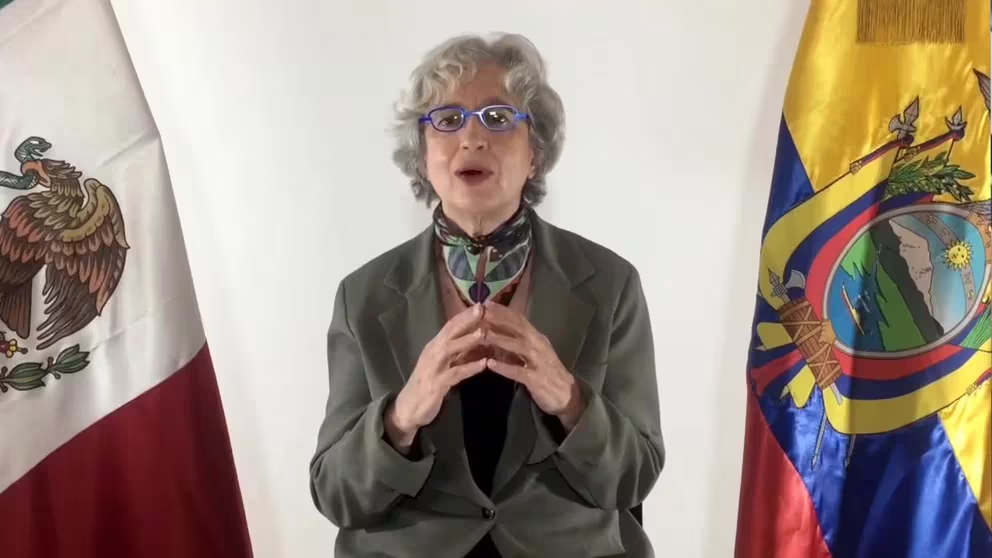
The request elicited suspicion from Ecuadorian authorities, as the Mexican Embassy had written to the Ecuadorian Foreign Ministry to facilitate the ambassador’s departure from Ecuador, stating that the official would leave unaccompanied. With the belief that Glas’ escape was soon to come, Ecuadorian authorities felt compelled to initiate an operation to facilitate the arrest of the former VP, according to Crosato.
Crosato then moved on to what followed the incident, stating that two meetings were scheduled in order to address the incident by the Organization of American States (OAS), by Ecuador and Colombia, respectively, before stating that Mexico had boycotted the meetings, effectively removing the ability to address the incident at a local level.
Crosato ended his portion by stating that, through the presented evidence, Ecuador had no other goal than to facilitate the arrest of Glas and that any deliberation regarding provisional measures must be made with knowledge of the prior instances of Mexico’s “regrettable conduct.”
Professor Murphy:
Professor Murphy’s segment was in regards to the Court’s dispossession of “prima facie,” a legal jurisdiction that requires the Court to have adequate evidence so that it is reasonable for the Court to proceed into trial. Murphy stated that according to international law, the Court must first decide whether “the provisions relied on by the applicant appear, prima facie, to afford a basis on which its jurisdiction could be founded,” stating that if the Court cannot, the case regarding the institution of provisional measures should be dropped.
Murphy continued, stating that according to the second article of the Pact of Bogota, a treaty that imposed obligations on members of the OAS to avoid conflict in the region, disputes “which, in the opinion of the parties, cannot be settled by direct negotiations
through the usual diplomatic channels” before it can be addressed by the United Nations.
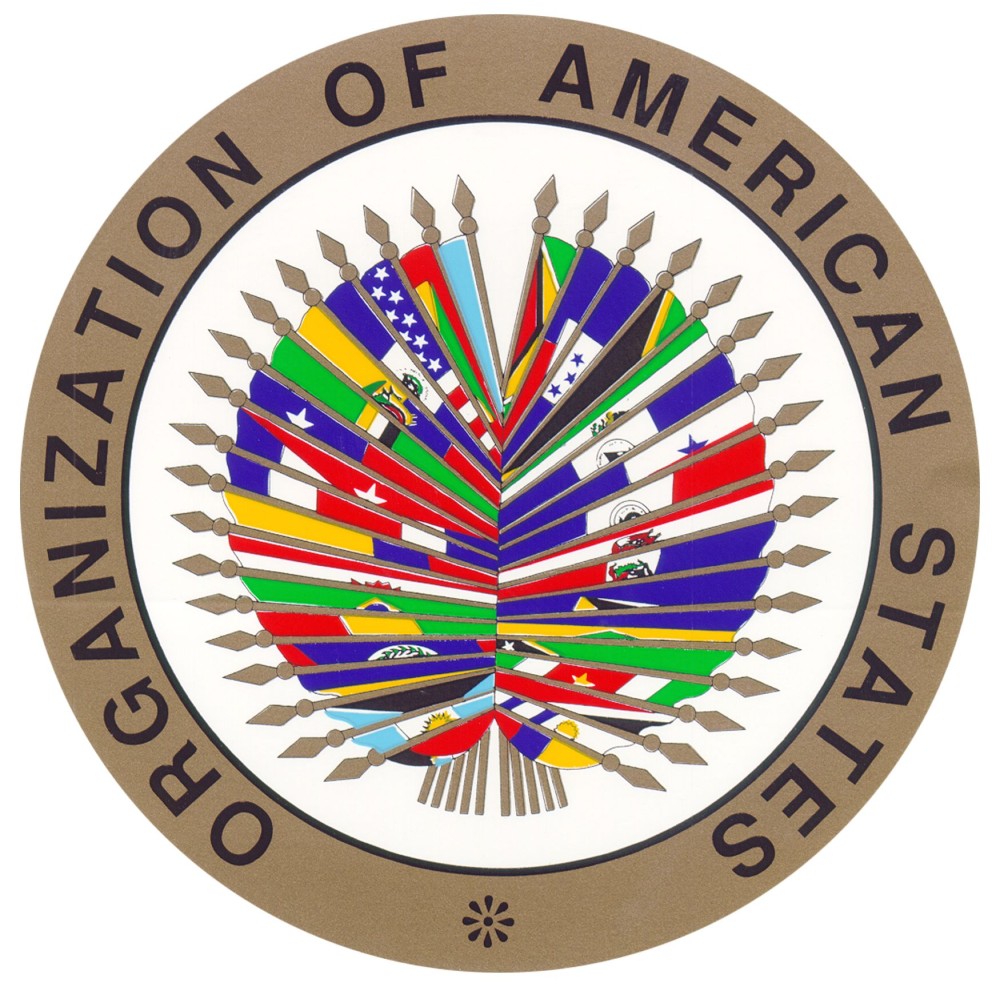
He continued, stating that there was “no basis for concluding that this dispute could not
have been settled by direct negotiations through the usual diplomatic channels prior to the filing of Mexico’s application,” stating that Mexico’s appeal to the ICJ was “premature” as there were “no negotiations, let alone direct negotiations.”
Murphy then stated that despite Ecuador sending a number of diplomatic notes to Mexico while attempting to open up dialogue between the two nations, Mexico instead broke all diplomatic relations with Ecuador, preventing the two from reaching a compromise laid out in the guidelines of the OAS. Ecuador then continued, stating that this was this was not only a case to the ICJ, but against the interests of a number of international organizations and foreign nations, with the OAS having “urge[d] Ecuador and Mexico to initiate a dialogue and take immediate steps, in accordance with international law, to resolve this serious matter in a constructive manner.”
The Pact of Bogota was a key point in Professor Murphy’s speaking portion, with the Ecuadorian representative further claiming that Mexico has no evidence that Ecuador would have or has prevented negotiations, and if any claims are to be made, they are firmly rejected by the Ecuadorian government.
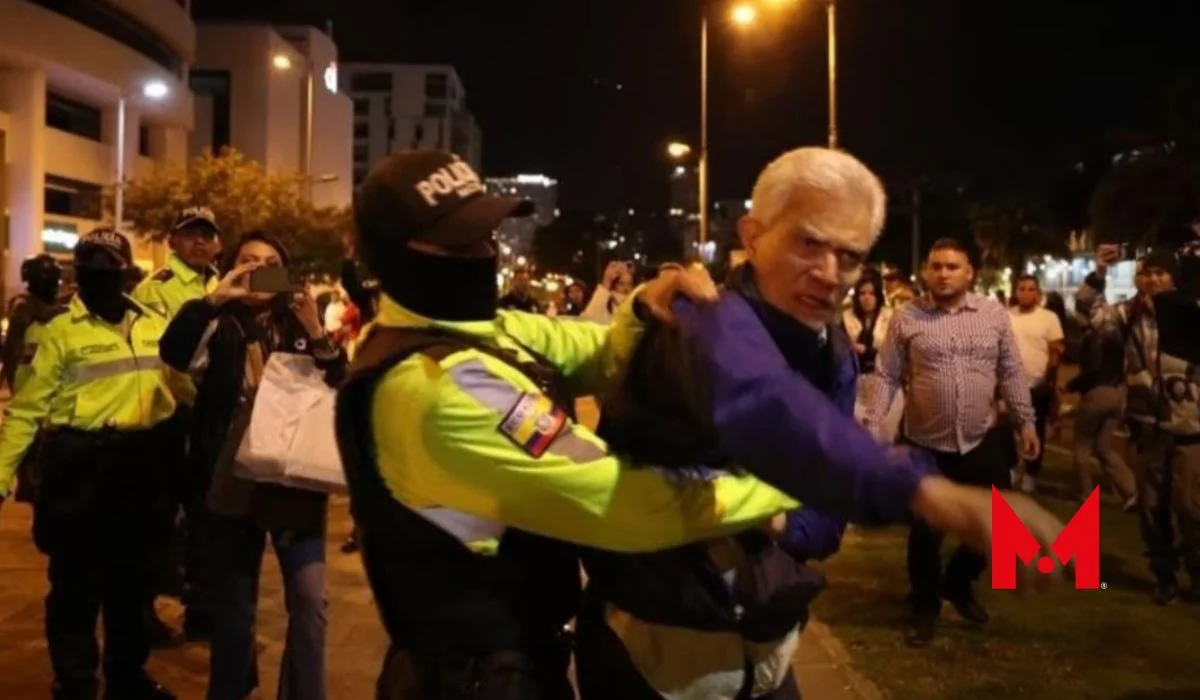
Murphy then addressed Mexico’s usage of a statement administered by Ecuador where Ecuador stated they had “exhausted diplomatic channels in respect of the dispute,” which, if true, would grant the ICJ jurisdiction under the Pact of Bogota. However, Murphy claimed that the mentioned “dispute” was in regards to Mexico’s Embassy “unlawfully harboring Mr. Glas in the Embassy,” not the raid conducted by Ecuadorian authorities.
He ended his speaking portion by concluding that the court does not have prima facie jurisdiction due to Mexico’s failure and refusal to enter into diplomatic talks with Ecuador regarding the embassy raid, before warning that if the court rules in favor of provisional measures against Ecuador, this would lead to the questioning of not only the Pact of Bogota but also similar agreements across the world, with Murphy citing the Convention against Torture alongside the Convention on the Elimination of Racial Discrimination as two such articles that may be questioned.
Sir Michael Wood:
Sir Michael Wood began his speaking portion by noting the rarity of ICJ cases that seek provisional measures due to the intended use of the measures of the measures being “urgent cases of serious and imminent breaches of international law.”
“The procedure was not used routinely for one party… the applicant… to come to this Great Hall of Justice to make political speeches, to appeal to public opinion at home or around the world, to engage in point-scoring against its adversary.” Wood told the court.
He continued, stating that while Mexico has called for the implementation of provisional measures, the country cannot provide “concrete (evidence) to require such measures.” Wood then reiterated that Ecuador had already agreed to the terms laid out by Mexico in the provisional measures, presenting two letters, one of which evidenced Ecuador’s promise to Mexico to uphold the sought-after measures, while the second, which was sent to the Court, expressed Ecuador’s responsiveness to Mexico’s “apparent concerns.” These notes were intended to prevent a case in the ICJ, according to Sir Wood, which resulted in Mexico refusing to withdraw the case.
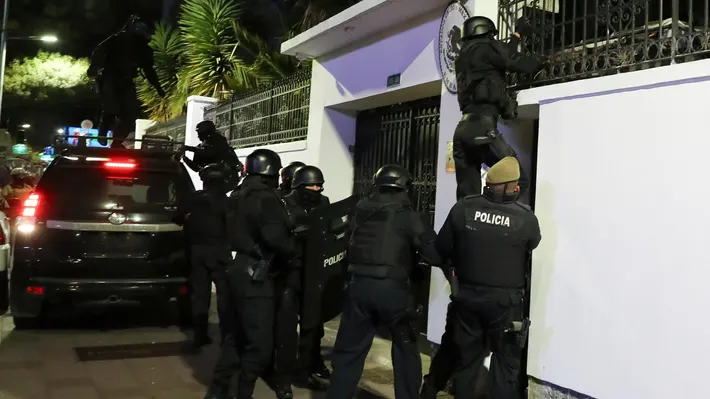
Sir Wood then continued with a list of alleged “absence(s) of plausibility.” He first noted that the second measure remained vague, even after the Mexican representative spoke. Sir Wood stated that while the first measure had a legal basis, it lacked situational justification, while the second measure itself was allegedly not a part of the Vienna Convention on Diplomatic Relations, and due to the Mexican representative’s failure to clarify the demand, “the measure could be denied on that basis alone.”
The representative continued, stating that Mexico has failed to provide evidence that Ecuador would violate the Vienna Convention, a claim levied by Mexico on Monday in which the representative of the embassy raid establishes that there is now a real and imminent risk of breaches of its rights. Sir Wood dismissed these allegations, stating that “the action on April 5, 2024, had a very specific purpose” and only took place “when a fugitive was being illegally withheld from Ecuadorian justice and there were grounds to fear his escape beyond the borders of Ecuador.”
Sir Wood then continued, stating that other provisions “fared no better” than those previous, noting that Mexico spoke out against the deployment of police to the embassy following the nation recalling its staff but later claimed in their statement on Monday that “the building… along with the archives, documents, and other property of the former Embassy, remain unprotected.”
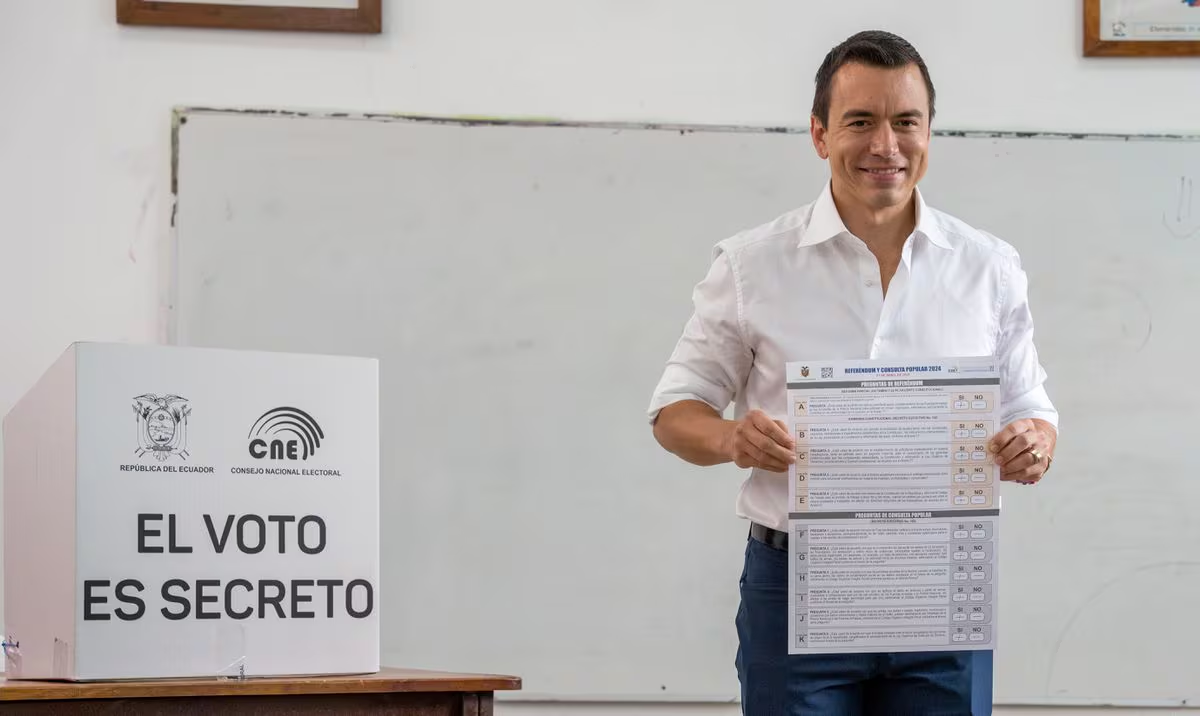
The representative then pointed to the third measure requested by Mexico, which requested “that the Government of Ecuador ensures that no action is taken that might prejudice the rights of Mexico in respect of any decision which the Court may render on the merits.” Sir Wood claimed there was no specific right identified in this measure before claiming that “there is no basis for finding specific plausible rights… Mexico has pointed to nothing that suggests that Ecuador would seek to frustrate an eventual judgment of this Court.”
Next, Sir Wood addressed the final requirement for the Court to establish provisional measures, the requirement for a real and imminent risk of irreparable harm, which he claimed is “dispositive.” He continued, stating that Mexico has failed to provide any evidence that there is a “real and imminent risk that Ecuador will do other than provide full protection and security for the diplomatic premises, property, and archives.” Sir Wood once again reiterated that Ecuadorian authorities only entered the Mexican Embassy in order to apprehend Glas in an extraordinary operation, and thus that Mexico has nothing further to fear regarding Ecuadorian action.
Sir Wood ended his speaking portion by stating that, due to Ecuador’s already-implemented measures, provisional measures are unnecessary and should not be issued.
Conclusion:
The original Ecuadorian representative concluded Ecuador’s response by reading the country’s final submission, which stated:
“The Republic of Ecuador requests the Court to reject the request for the
indication of provisional measures submitted by the United Mexican States.”
Analysis:
Through this hearing, it seems that Ecuador is focusing on getting the court case thrown out in order to prevent both a long-term court battle and the possibility of losing. This would be the best outcome for Ecuador, as by throwing the case out, Mexico would be forced to give up their demands and approach Ecuador directly or through the OAS.
It is important to note that if provisional measures are authorized and the court case proceeds, cases in the ICJ can last for years, and even once a verdict is reached, the court has no official means of enforcing their ruling.
Previously, Mexican authorities released footage of the arrest of Glas in the Embassy, which shows authorities breaching the embassy and carrying out a search of the premises before having multiple altercations with Mexican Ambassador Roberto Canseco.
Following his arrest, Glas was transported to the infamous La Roca prison in Guayaquil, where he was later found to be unconscious on the ground. This prompted authorities to transport the former Vice President to a nearby military hospital, while the National Service for Comprehensive Attention to Persons Deprived of Liberty, the organization that is in charge of administering Ecuadorian prisons, stated that Glas had passed out from lack of sustenance after refusing to eat for 24 hours.


